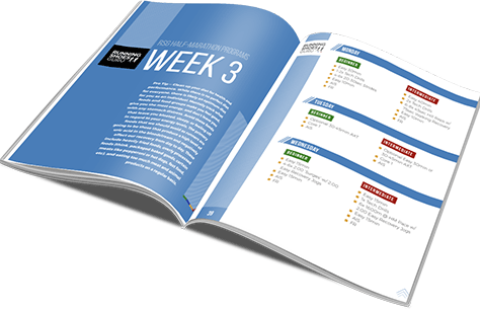Karhu Flow Trainer 3 Review
Karhu is not a household name, but that should not stop you from thinking they make good shoes. The Flow Trainer 3 was my first opportunity to run in a Karhu shoe, and I was impressed. For the right runner, the Flow Trainer just might be the right shoe.
Karhu Flow Trainer 3 First Impressions
Out of the box, the Flow stands out with vibrant colors. Though Karhu categorizes the Flow Trainer as a performance trainer, I think it would appeal to anyone looking for a minimalist shoe. It’s a light shoe (8.5 oz.), and extremely flexible from toe to heel. Side-to-side, the shoe twists very easily, and the heel counter is not too rigid. From heel-to-toe, the Flow Trainer is offset by 8mm (18mm/10mm). The only non-minimalist aspect of the Flow Trainer is the toe box, which is more traditional.
Karhu’s signature feature is Fulcrum—a wedge of denser foam in the midfoot of the sole, which is meant to promote a midfoot strike by quickening the transition to toe-off. I was not quite sure how the Fulcrum would affect the feel of the shoe underfoot. A year ago, I tested the Sketchers GOrun. The GOrun also has a midfoot-promoting feature, which I found made the shoe uncomfortable. Walking around, I could feel the Fulcrum, but I’m willing to see how it feels when running.
Karhu Flow Trainer 3 Sole Unit
The amount of midsole foam in the Flow Trainer is minimal (comparable to the Brooks Pure Connect), but it provides enough cushion for training. It feels firm underneath, as one would expect. But the most unique feature is the Fulcrum. When I first started running in the Flow Trainer, I could feel the Fulcrum’s action. Like a see-saw, it pushed my foot forward at initial contact. It did not feel awkward at all, but very smooth. After one run, however, I stopped noticing the Fulcrum completely. I think for someone transitioning to minimalist shoes or working on a midfoot strike, the Fulcrum might be a very appealing feature. It has an action similar in theory to the GOrun, but in my opinion, Karhu’s Fulcrum is more subtle in effect. For the same reason, runners who already strike on the midfoot might are not prevented from wearing the Flow Trainer.
The outsole offers full length contact to the surface—no separation between the heel and forefoot. The midfoot portion of the outsole may look less durable because it does not have black carbon rubber, but it is made of more durable materials, and so should not present any durability issues.
Karhu Flow Trainer 3 Upper
The upper of the Flow Trainer is very light and breathable. There are no overlays to restrict the structure, and so, it has a very slipper-like feel. The GOrun also had a very nice upper, but I also experienced a lot of heel slippage in the GOrun. The Flow Trainer’s upper is very loose and forgiving, but, unlike the GOrun, it still provided a secure fit, and I never once experienced heel slippage.
Karhu Flow Trainer 3 Opinion
While running in the Flow Trainer, I found myself thinking about my experience with the Sketchers GOrun. I think these two shoes are aimed at the same runner: someone who is looking for a shoe that promotes a midfoot strike. Of the two, I strongly feel that Karhu offers the superior option because its technologies are more refined. I also think the Flow Trainer would appeal to a wider audience of runners. Experienced minimalist runners might find the Flow Trainer sufficient for everyday training. Runners who want more traditional shoes, but are looking to throw a more minimalist shoe into their rotation may like the Flow Trainer. The Flow Trainer might also serve as a racer for some runners.
If you are looking for a solid shoe that delivers a smooth minimalist ride, then take a look at the Karhu Flow Trainer 3.
Karhu Flow Trainer 3 Price Comparison
This page contains affiliate links. As an Amazon Associate I earn from qualifying purchases.
















